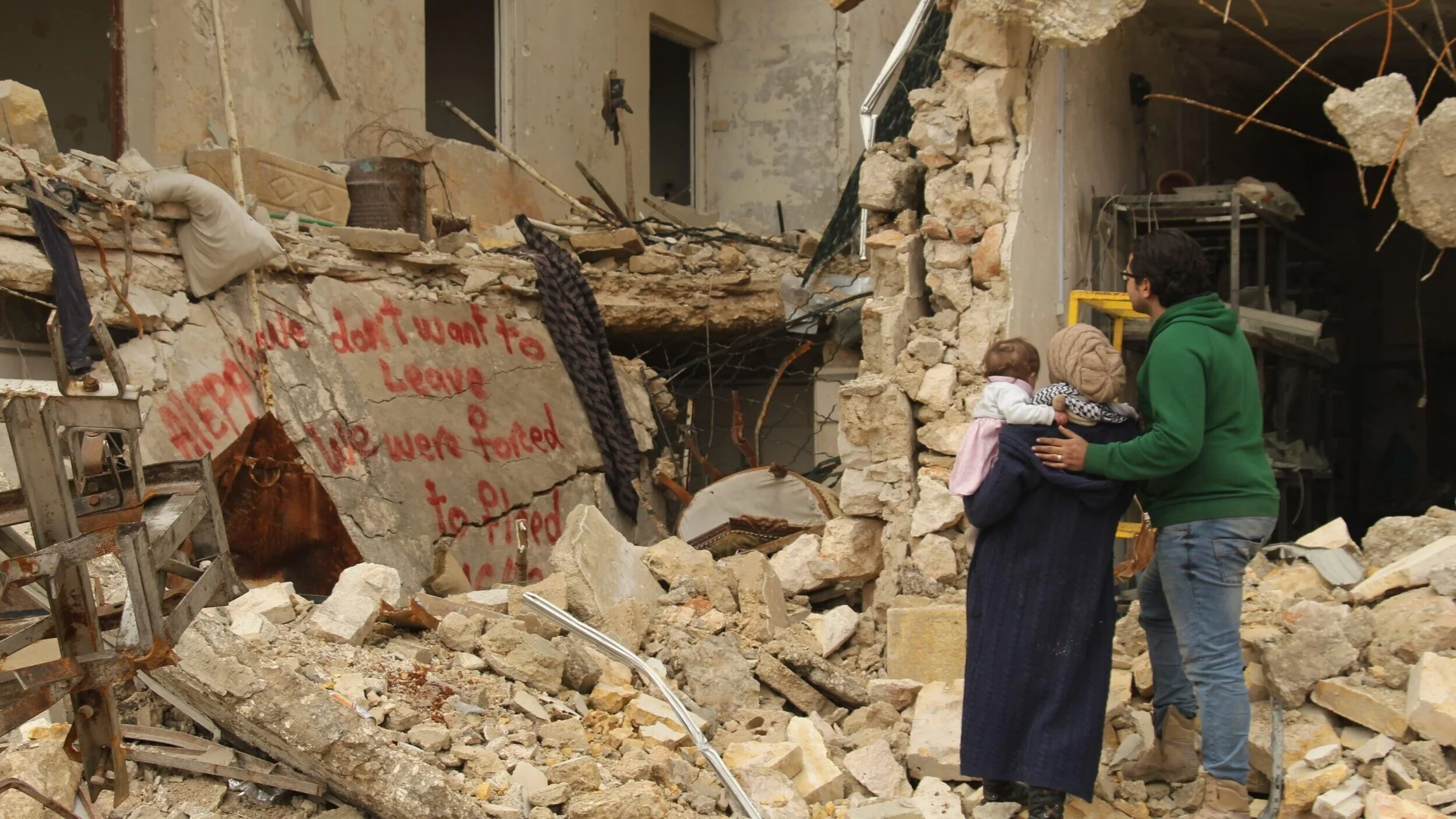For Sama
A mother from Syria brings us a remarkable document addressed to her daughter.
The tragic civil war in Syria has been the subject of a number of documentary films and, as it happens, their quality has been consistently impressive. The first to be released here was 2013's Return to Homs and in 2018 that location was revisited with equal distinction for Under the Wire the film centred on the reporter Marie Colvin. In no way less memorable is For Sama the winner of the Documentary Prize at this year's Cannes Film Festival. This time the setting is Aleppo, but the horrendous conditions revealed are very much the same. What is different is the personal nature of the project: with Edward Watts sharing the directorial credit with her, this is a film made by one of Aleppo's residents, Waad al-Kateab, and, as indicated by the title, For Sama is a record which, made over the five years from 2012 to 2016, is addressed to Waad's daughter Sama born in Aleppo on 1st January 2016.
Waad is also the narrator here and in that capacity she can convey directly the need she feels to explain to Sama why her parents took the risks that they did. Aleppo was known as a stronghold of the rebels intent on taking a stand against the government of Bashar al-Assad and would become a prime target for Russian bombers supporting the regime. At the age of eighteen Waad with other friends at Aleppo University became an activist and, as such, from 2012 onwards she was taking photographs of what was going on around her. Her footage as assembled here becomes a touching tribute to bravery in the midst of suffering, a portrait of optimism against the odds and a work which is at its most moving when we see children who are too young to have known a peaceful existence playing with other children as though theirs was a normal childhood.
However, For Sama is also a love story. Waad fell in love and would marry a doctor, Hamza, who was playing a major role in keeping a hospital functioning in Aleppo for as long as was humanly possible. Doing that meant that one key decision was taken after a visit to an elderly sick relative in Turkey: Waad and Hamza agreed that their duties in Aleppo made it necessary for them to return despite the severe danger there and, believing that young Sama needed their presence, they took her back with them. Some might disapprove of that decision but, in the long run and despite moments of total despair, Waad came to believe that the choice had been the right one, albeit something that Sama might not understand when she grew up but for the existence of this film.
For Sama is not quite a perfect piece. Given that the images are in the 'Scope format which adds to the film's immersive quality, it is a pity that early on tighter editing was not applied to hand-held camera shots which suggest the chaos but do so in a tiresome blur. At the conclusion that frequent flaw - a tendency to linger when a sharper close would be more effective - is present and some might question the decision to move back and forth in time throughout the film (in the first half this does offer variety by contrasting scenes showing little Sama with events before her birth although later on it serves no clear purpose). But these are small points. This film blends a personal tale and a country's tragedy to awesome effect. For Sama is among the year's best documentaries.
MANSEL STIMPSON
Featuring Waad al-Kateab, Hamza and Sama.
Dir Waad al-Kateab and Edward Watts, Pro Waad al-Kateab, Ph Waad al-Kateab, Ed Chloë Lambourne and Simon McMahon, Music Nainita Desai.
Channel 4 News & ITN Productions/PBS Frontline-Republic Film Distribution.
100 mins. UK/USA. 2019. Rel: 13 September 2019. Cert. 18.


